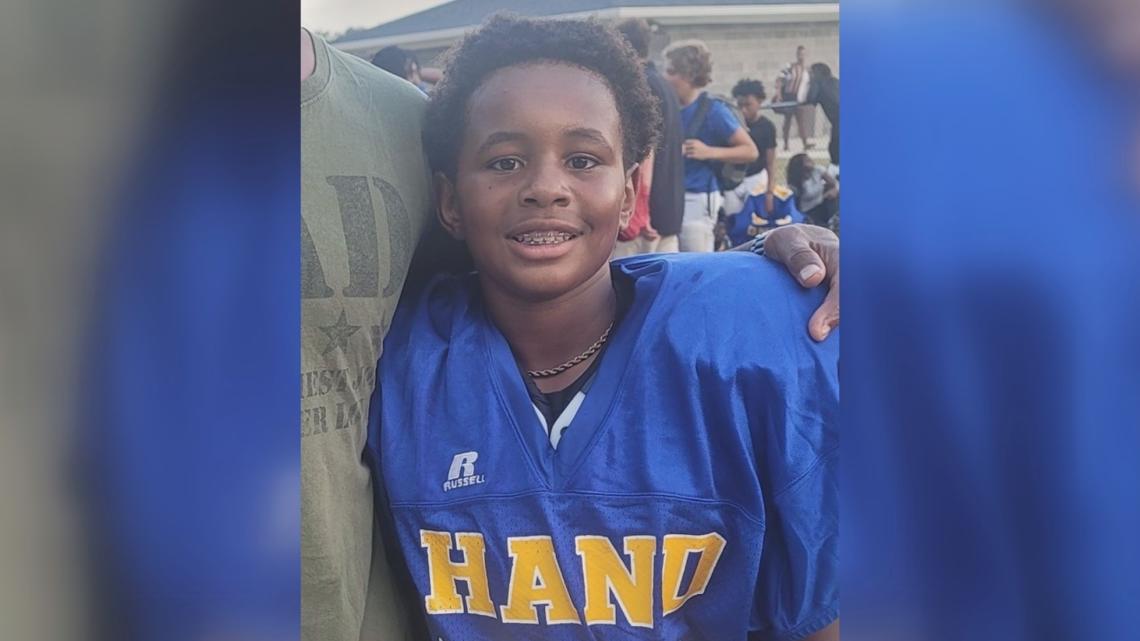
Jaysen died on July 18 after being hospitalized for over a week and a half.
COLUMBIA, S.C. — The parents of 12-year-old Jaysen Carr, who died earlier this month after contracting a rare brain-eating amoeba, spoke publicly for the first time Tuesday, calling on state agencies and lawmakers to take action so that no other family experiences the pain they are now facing.
“Jason should still be here,” Jaysen’s father, Clarence Carr, said during a news conference in Columbia. “There’s absolutely no excuse why he shouldn’t be.”
Jaysen died on July 18 after being hospitalized for over a week and a half. His family said the infection came after he swam in Lake Murray over the July 4th holiday.
The Carrs were joined by their attorney, Tyler Bailey, who said the family has not been contacted by any public health or environmental agency following their son’s death. Bailey identified the cause of death as Naegleria fowleri, an amoeba that thrives in warm freshwater and is almost always fatal once symptoms begin.
“Not one agency has reached out. There’s never been any testing of the water. No questioning of where Jaysen was swimming,” Bailey said. “We’re doing the work the agencies should have done.”
Jaysen’s father shared how the illness progressed.
“We just assumed it was a regular migraine or headache,” Clarence Carr said. “But in hindsight, this was no headache. He was being attacked.”
After returning from the lake, his son complained of a headache. “We gave him some Tylenol, and he said he felt better,” Clarence Carr said. “The next day he felt the same, so we went to the ER.”
Even after a hospital visit and antibiotics, Jaysen’s condition worsened. Eventually, doctors performed a spinal tap to test for meningitis. “We did disclose he had been in Lake Murray,” Clarence said.
Jaysen continued to fight despite the odds. “I’ve never witnessed anyone with the will to fight like my son, and I probably won’t ever,” Carr added. He refused to quit.”
The South Carolina Department of Health is not required by law to be notified by hospitals nor is ordered to track this particular illness. Usually, that data is reported federally to the Centers for Disease Control. There’s also no testing mechanism for the amoeba, which is naturally occurring and can be found in almost any freshwater lake or river.
“The state already has a mechanism in place for testing our beaches,” Bailey said. “But our lakes are where the residents go, and there should not be a distinction between the two.”
Bailey said the family plans to push for legislative changes, including requiring routine testing of lakes for deadly pathogens, adding Naegleria fowleri to the state’s list of reportable diseases, and issuing public safety advisories when water temperatures climb above 80 degrees.
“We want the Department of Environmental Services to begin testing immediately,” Bailey said. “The same system we have for beaches can be duplicated for our lakes.”
The family said Jaysen’s story highlights the importance of informed choices.
“They say it’s rare,” Ebony Carr said. “But how rare is it when it happens to your child? That risk is too high.”
Bailey said water temperature and levels are already tracked at Lake Murray. He believes those systems can also be used to issue health advisories.
“A simple message like, ‘Water temperatures are high, there may be a risk of amoeba exposure—please use caution,’ could save lives,” Bailey said.
Jaysen’s family said he was a gifted athlete and musician, who was also involved in supporting students with special needs at his school.
“He played three different divisions of baseball. He was in honor band. He loved unconditionally,” said his mother, Ebony Carr. “He either loved you or just didn’t know you yet.”
The Carrs say they are just beginning their advocacy journey. A state lawmaker, Rep. Jermaine Johnson, has expressed interest in filing legislation later this year. But the family says they want immediate action from public health and environmental agencies.
“If we had known the risk, he wouldn’t have been in that lake,” Clarence Carr said. “We want other parents to know. We don’t want any other child to go through this.”
The family is urging people to contact their lawmakers and agency leaders to demand changes that will protect South Carolina families.
“Jaysen was a fighter,” Bailey said. “And now, his legacy will be a fight for something greater—safety, awareness, and change.”
